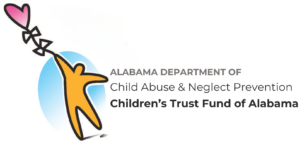Substance use is rampant in Alabama today, enslaving the lives of countless individuals from all walks of life. This can be seen specifically with opioid misuse among individuals of varying social standings. One of the most dangerous aspects of substance use is the misconception around the word ‘addiction’ which comes to dictate the way individuals view those struggling with substance use disorder. When one believes they or a loved one is immune to the disease of addiction, they are setting themselves or others up for the risk. All levels of society are equally susceptible when it comes to substance use disorder.

Misconceptions are not just found to apply to drug users but also drug dealers. Dr. Stephen Taylor, M.D. and Chief Medical Officer, Pathways Healthcare, speaks to this when he says, “A lot of the people who, in many cases, unintentionally contribute to the development of the opioid use epidemic are doctors who prescribe people opioid analgesics or medications intending to try and relieve pain.” Dr. Taylor later follows up with the fact that doctors have often prescribed too heavily and rather aggressively to patients who did not need to be maintained on opioids. We are seeing improvement in this area, but progress is slow.
This information sheds light on the fact that no individual is immune from the dangers of accessing and misusing opioids. In fact, Dr. Taylor states, “If you are at an increased risk of being prescribed opioids, then you are automatically at increased risk for potentially developing a problem with opioids.” Research has shown that adolescents are frequently exposed to opioid use after sports injuries, minor surgeries, and dental procedures where pain medicines are prescribed. Without prior education, these small onsets can trigger a growing dependence on these substances. By normalizing the conversation around substance use and destigmatizing those who suffer from substance use disorder, one can make room for healthy dialogue to occur surrounding these prevalent issues. By creating a safe space where this issue is discussed and identified, healthy dialogue can result in facilitating awareness and providing practical steps to avoid substance use disorder, at all ages and stages.
What is an Opioid?
 Opioids are prescribed with the intention to treat chronic or severe pain. When an opioid enters the body, it connects to opioid receptor proteins which block pain messages that are sent to the brain. These prescription drugs can come in the form of Codeine, Fentanyl, Hydrocodone, Oxycodone, Oxymorphone, and Morphine. The use of these drugs can create a feeling of euphoria and calm that is highly desirable in moments of pain and anxiety. Although the body quickly develops a dependence on the drug, another propellant to drug reliance is anxiety over feeling pain. Often when an individual is fearful of feeling pain, they mentally become dependent, resulting in their body experiencing withdrawals and thus entering the cycle of addiction.
Opioids are prescribed with the intention to treat chronic or severe pain. When an opioid enters the body, it connects to opioid receptor proteins which block pain messages that are sent to the brain. These prescription drugs can come in the form of Codeine, Fentanyl, Hydrocodone, Oxycodone, Oxymorphone, and Morphine. The use of these drugs can create a feeling of euphoria and calm that is highly desirable in moments of pain and anxiety. Although the body quickly develops a dependence on the drug, another propellant to drug reliance is anxiety over feeling pain. Often when an individual is fearful of feeling pain, they mentally become dependent, resulting in their body experiencing withdrawals and thus entering the cycle of addiction.
Prevention Measures
Many of these issues in the past have stemmed from a lack of education for the patient and a lack of communication from the health care provider. Dr. Taylor spoke on this issue, stating that it is the doctors’ job to be clear on how to consume and dispose of medication. Additionally, it is through awareness of the substance use issue that one is equipped to be successful. The knowledge of these dangers paired with the necessary tools lays the foundation to prevent substance use dependence, specifically opioid use disorder.
As a consumer, it is important for you to be prepared to ask the right questions when faced with possible procedures or situations that may result in the prescribing of narcotics, such as “Are there any alternative pain management medicines I could take?” and “How long do I need to take these medicines?”. Additionally, if your physician recommends opioids, build in extra accountability by allowing a loved one to manage your medication during your recovery.
Additionally, it is equally as crucial to dispose of your prescription pain medications when you are no longer in need of them. A study published in the Journal of the American Medical Association (https://pubmed.ncbi.nlm.nih.gov/28768328/) found that up to 71 percent of opioid tablets prescribed after surgery went unused. Proper disposal not only prevents you from being tempted to misuse the medications, but also keeps loved ones or visitors from having access to these prescriptions. Approximately 50% of people who misuse prescription pain medicines get them from a friend or family member. Keeping unused opioids in the home creates a serious health risk, especially if teens live with or visit you.
There are a variety of methods of disposal that can assist in protecting yourself and a loved one. Medication disposal boxes are nationally dispersed at local pharmacies. Click here to find your local disposal boxes near you.  Additionally, Deterra bags are an incredibly helpful resource that is a portable and cheap way to dispose of medications in the home. The Deterra Drug Deactivation System is the sole product available that has an effective activated carbon per medication ratio that will completely destroy the medication, ensuring complete removal of the substance. APC is a state provider of these disposal bags and will provide them to any individual who is in need of them. To inquire about and order these disposal bags contact Edward Taylor.
Additionally, Deterra bags are an incredibly helpful resource that is a portable and cheap way to dispose of medications in the home. The Deterra Drug Deactivation System is the sole product available that has an effective activated carbon per medication ratio that will completely destroy the medication, ensuring complete removal of the substance. APC is a state provider of these disposal bags and will provide them to any individual who is in need of them. To inquire about and order these disposal bags contact Edward Taylor.
Finally, the semi-annual DEA National Prescription Drug Take Back Days in both April and October of every year allow for individuals to dispose of their prescription drugs at drop-off locations around the country.
By creating awareness and providing education regarding the dangers of both substance use and opioid use, one can pursue prevention in both their home and in their families. Healthy conversations surrounding these issues can result in greater advancements toward a drug-free community.









